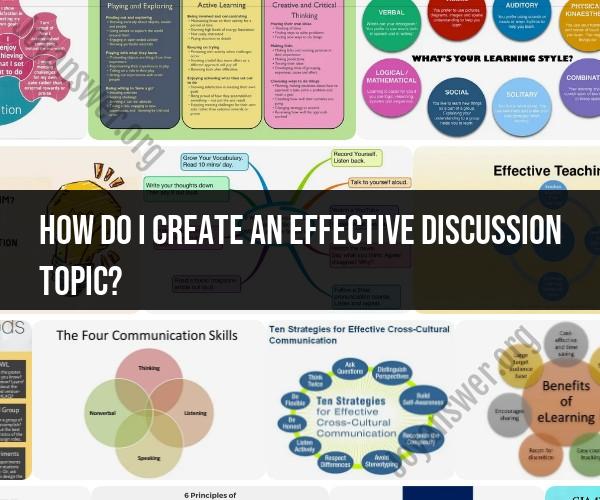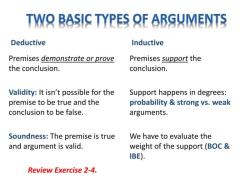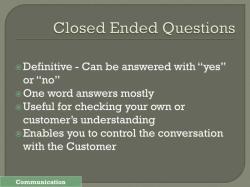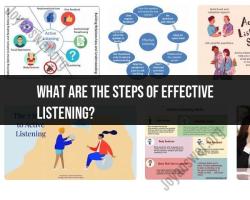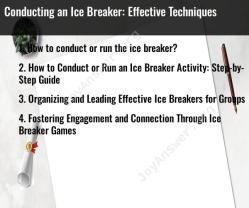How do I create an effective discussion topic?
Creating an effective discussion topic is essential for fostering engaging and meaningful conversations, whether it's in a classroom, online forum, or any other setting. Here are steps and tips to help you craft effective discussion topics:
Define Your Purpose:
- Start by clarifying the purpose of the discussion. What do you want participants to learn, explore, or discuss? Understanding your goals will guide your topic creation.
Consider Your Audience:
- Think about the interests, background, and knowledge level of your audience. Tailor the topic to their needs and expectations.
Choose a Relevant and Timely Subject:
- Select a topic that is relevant to your audience and the context. Current events, trends, or issues often make for compelling discussion topics.
Make It Open-Ended:
- Create topics that allow for multiple viewpoints and interpretations. Avoid yes/no questions and instead pose questions that require thoughtful responses.
Focus on Depth, Not Breadth:
- Rather than covering a broad range of subtopics, dive deep into a specific aspect of the subject. In-depth discussions are often more engaging and insightful.
Use Thought-Provoking Questions:
- Craft questions that stimulate critical thinking, curiosity, and reflection. Ask "why" and "how" questions that encourage exploration.
Consider Controversy and Diverse Perspectives:
- Controversial topics or those with multiple perspectives can lead to lively discussions. However, ensure that the discussion remains respectful and constructive.
Connect to Real-Life Scenarios:
- Relate the topic to real-life situations, challenges, or experiences. Participants are more likely to engage when they can see the relevance.
Provide Context and Background Information:
- Offer some context or background information to set the stage for the discussion. This can help participants understand the topic better.
Use Engaging Media:
- Incorporate visuals, videos, articles, or case studies related to the topic. Multimedia can enhance understanding and spark conversations.
Encourage Personal Stories and Anecdotes:
- Invite participants to share personal experiences or anecdotes related to the topic. This can make the discussion more relatable and engaging.
Balance Complexity and Accessibility:
- Ensure that the topic is accessible to your audience while still challenging their thinking. Striking the right balance is key.
Create a Compelling Title:
- Craft a clear and intriguing title for your discussion topic. The title should capture the essence of the topic and pique participants' interest.
Test Your Topic:
- Before using the topic in a formal setting, discuss it with a small group or colleagues to gather feedback and make improvements.
Set Clear Discussion Guidelines:
- Establish guidelines for the discussion, including time limits, rules of engagement, and expectations for participation.
Moderate Effectively:
- If you're moderating the discussion, be prepared to guide the conversation, encourage participation, and ensure a respectful atmosphere.
Evaluate and Iterate:
- After the discussion, assess its effectiveness. Did it achieve its goals? What could be improved for future discussions? Use feedback to refine your approach.
Remember that an effective discussion topic is just the starting point. The quality of the discussion also depends on how well it is facilitated, the level of participant engagement, and the willingness to listen and learn from each other's perspectives.
